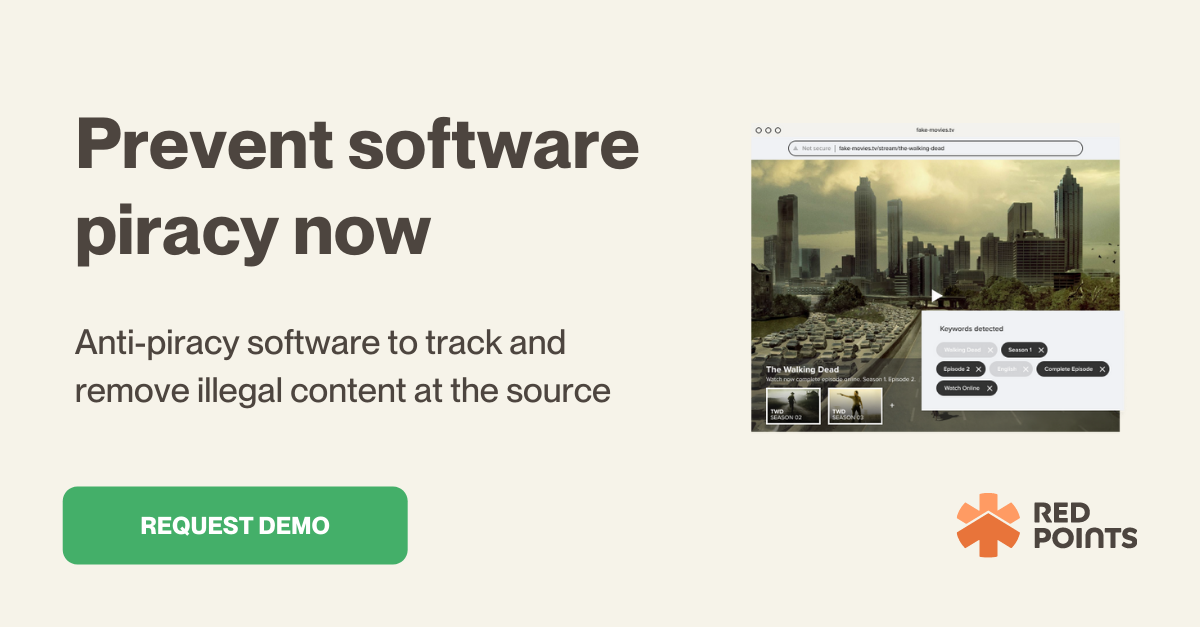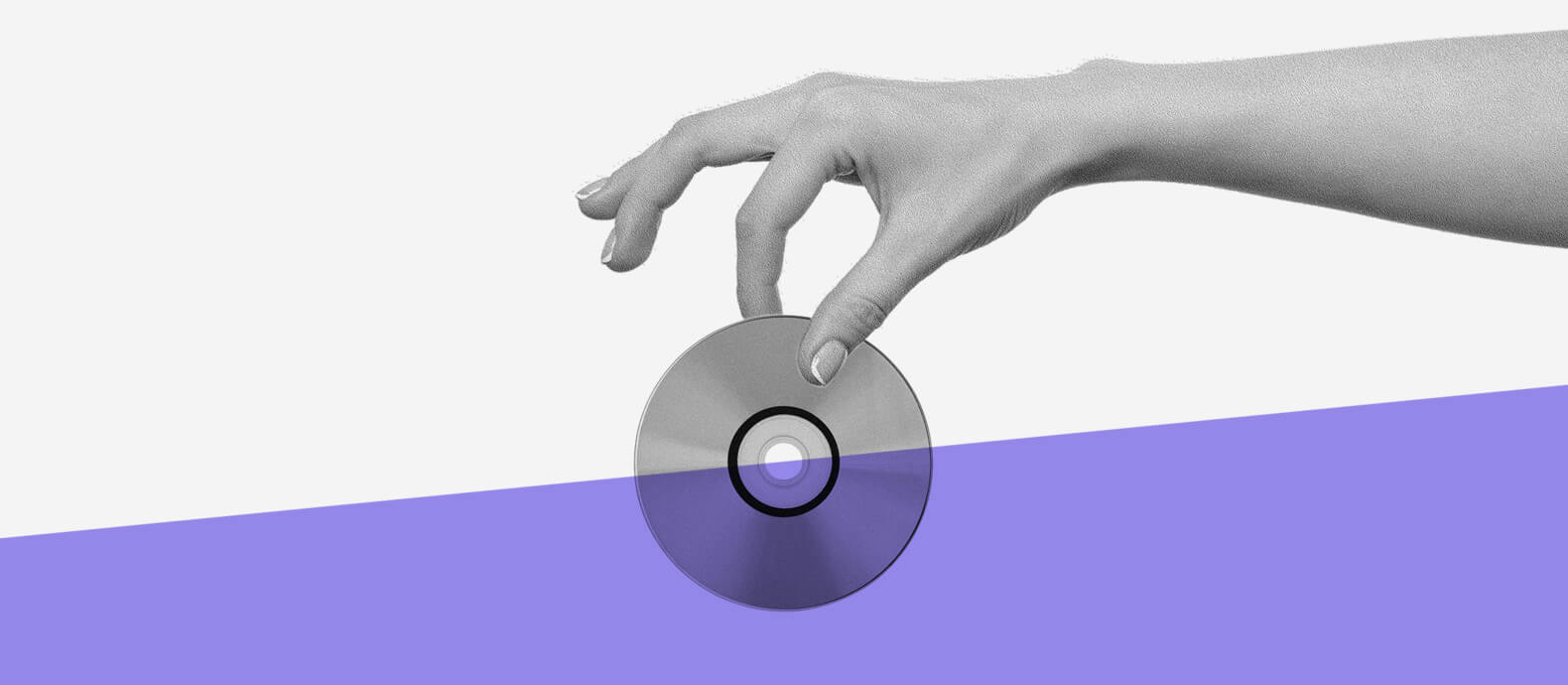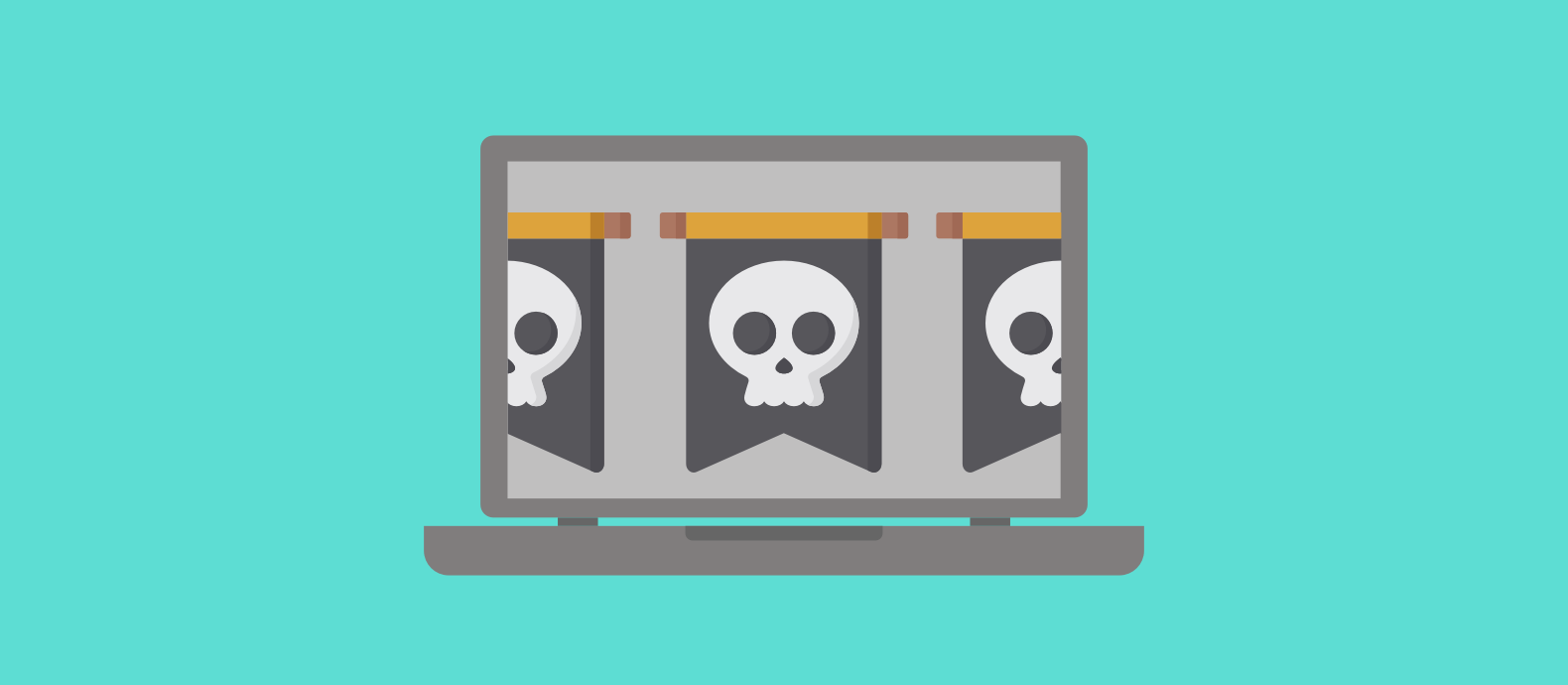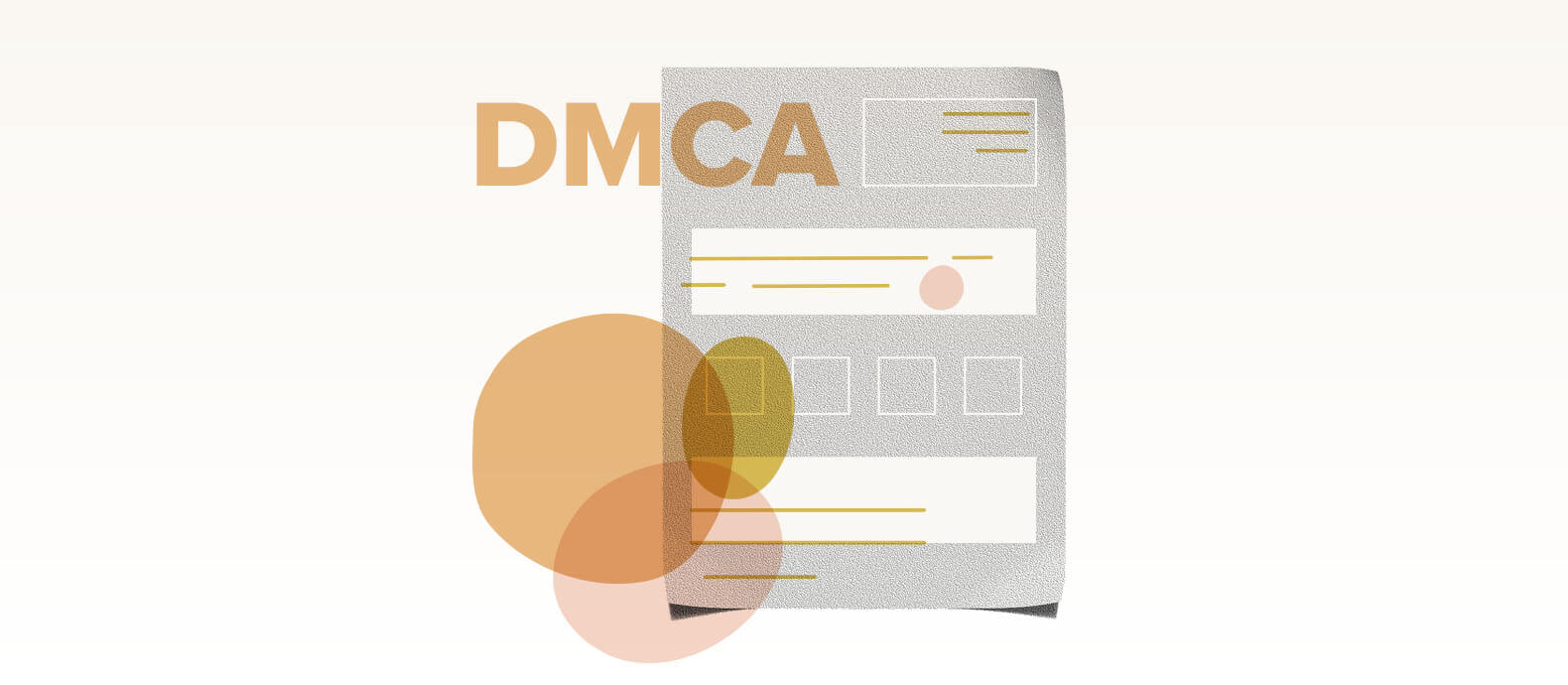Software piracy is a global issue costing tech companies around the world tens of billions of dollars in lost revenue annually. Due to evolving digital piracy tactics and illegal streaming sites, protecting software intellectual property is getting harder and putting more tech companies at risk. It has never been more imperative for companies to protect their software IP, especially after the COVID-19 outbreak.
According to various reports compiled by KommandoTech, the global pandemic has led to a 20% – 30% increase in software piracy. This unprecedented increase puts companies large and small at risk, and simply holding software copyright isn’t enough to protect your content.
So, how do you protect software intellectual property from the ever-growing risk of software piracy? That’s what we are here to answer.
Summary:
- Types of intellectual property that can protect computer software
- Importance of protecting your software intellectual property right now
- Tactics to protect software intellectual property from piracy
- Using technology to address software piracy
What kind of intellectual property can protect computer software?
Intellectual property, also known as IP, grants legal ownership of any unique creation, including software, to the creator. Software intellectual property legally prohibits unauthorized users from copying, stealing, or sharing the software program or code belonging to you or your company.
There are various forms of intellectual property that can protect computer software, each with certain distinctions that are important to be aware of. These forms of IP include:
Software Patent
Many people new to software IP wonder– can you patent software? The answer is yes, you can, and should. Patents provide the unshared right to manufacture, utilize, and make a profit from selling a unique invention, which includes software and code.
To register your software patent in the United States, the Patent Office requires your software to be:
- Unique: The software or code is new to any existing products and/or patents.
- Useful: Your software must serve a purpose and be accessible for use.
- Nonobvious: Your software must contain a unique component that wouldn’t be the obvious next step to improve existing software or code.
The cost of filing a software patent varies greatly depending on how you go about the process. Filing the patent yourself will save you money, and can be done for under $1,000. This process can be tricky, however, so you may want to hire legal assistance, which will cost a great deal more.
Once you register your software patent, you typically have around 20 years before it expires. However, you will have to pay a regular maintenance fee to keep your software patent up-to-date. This fee can vary greatly depending on your specific patent.
The process to register your software patent can be challenging and time-consuming, but the provided protection is well worth it. Investing in software protection upfront can save you hundreds of thousands in lost revenue from future software piracy.
Software Copyright
Copyrights grant sole legal ownership of any original work to the creator, prohibiting unauthorized copies, modifications, or distribution of that work.
What’s the difference between software copyright and a software patent? Where software patents protect the idea of a unique software invention, software copyrights protect the original work behind that invention.
For example:
A tech company wants to create a unique inventory management system to sell to small businesses. The idea of that inventory management system is not copyright protected and instead would require a patent registration. The source code was written to make the software run, however, is an original work automatically protected by copyright.
Software copyrights apply automatically, as soon as the code, user interface, or other original work used in the software is created. No formal registration is needed for copyrights, and they apply for the creator’s life, plus an additional 50-75 years.
Though copyright registration isn’t required, it is a good idea to obtain an official registration for your copyright to best protect against future software piracy. Your registered software copyright will make it far easier to prove your legal ownership and enforce IP to address pirating or other infringement.
Software Trademark
Trademarks protect unique, identifying aspects of a brand, such as logos, phrases, words, symbols, product designs, and more.
Why get a software trademark? Trademarks are essential to every business, as they help consumers identify your brand and sort your products and services from others. If your business trademarks are stolen and used by another brand, you may face lost revenue along with a tarnished reputation.
In the United States, you can register for a software trademark online at the USTPO. Like registering a patent, fees for your software trademark will vary greatly depending on what you are trademarking, and if you will need legal assistance. Trademarks don’t expire after a certain term, but it is advised to maintain your trademark to keep it in good standing, which includes trademark maintenance fees.
Software Trade Secret
Trade secrets are exactly what they sound like– specific information used by a business that has value because it is generally unknown and kept secret. Software trade secrets could include unique devices, algorithms, source code, and more, so long as they meet specific requirements.
To be legally recognized, a trade secret must:
- Provide (or have the potential to provide) value to the owner by being kept secret.
- Provides some type of value to others who can’t access the information.
- Be protected by the owner as a secret, with reasonable measures taken to keep the information out of public knowledge.
Like copyrights, trade secrets do not need a registration to be recognized and protected by the law. So long as the information remains secret and valuable, a trade secret never expires.
Why intellectual property rights are important for a software company
Your software intellectual property is the foundation of your business; without it, you wouldn’t have a product to sell or an identifiable brand. Software piracy impacts every aspect of your business, from lost revenue to negative customer experience that tarnishes your brand reputation, and it’s only getting worse.
Software piracy is commonplace in today’s digital world. According to the 2018 BSA Global Software Survey, 37% of all software installed on personal computers was unlicensed. Billions of movies and songs are illegally downloaded every year, the software is shared between multiple users, and so on. Every well-known tech company has faced the effects of software piracy on its business.
Take Netflix for example the video streaming service faces software piracy from illegal streaming sites and the unauthorized sharing of accounts with non-paying users. A 2021 CordCutting report estimated that Netflix alone lost an estimated $1.8 billion to accounts shared with unpaying users.
Software piracy is nearly inevitable for tech companies, whether they are massive global streaming services like Netflix or smaller businesses. In either case, businesses simply can’t afford to let software piracy go unaddressed. Protecting your software intellectual property is the only way to maintain control and ownership of your IP, and take down piracy when it occurs.
How to protect software intellectual property
With all the time, resources, and work that goes into creating software, a comparable amount of time and effort should be made to protect it. The following steps can help you protect your software IP and prepare to address various forms of software piracy.
Register your intellectual property rights
It is important to officially register any applicable intellectual property rights for your software as soon as the requirements for these rights have been met.
Patents and trademarks, as mentioned above, are the two IP rights you will have to register for in order to hold legal ownership of them. Though you don’t have to register for software copyright, this will provide another layer of protection against software piracy.
Manage your intellectual property portfolio
Once you have the proper registrations for your intellectual property, it is vital you keep up-to-date records and keep your registrations maintained. Ensure you create a thorough IP portfolio containing any expiration dates, maintenance requirements, and fees.
Managing your software intellectual property portfolio also means monitoring for infringements of your IP across various sites and platforms.
Enforce your intellectual property rights
If you identify someone misusing your rights, utilize your IP portfolio to prove your ownership and enforce your IP. Depending on the form of infringement, your response may be different to enforce your IP and get the stolen content taken down.
Sending a DMCA takedown notice is generally a good first step when you identify software infringement. This will serve as a notice to the recipient that infringement has occurred and legal action will be taken if the content is not taken down.
If you don’t think a DMCA takedown is appropriate to deal with the software piracy you are experiencing, you can seek out professional help. Seeking legal advice or working with anti-piracy software can help you identify where your piracy is coming from and how to address it.
Be careful with source code licenses
Source code licenses serve as an authorized use guide and agreement for the user, as well as the key to access the software. While it’s common for software to come with a code license agreement and license key, it may not always be the best choice for businesses.
Keys require another code written into the software and can be difficult and pricey to manage and distribute to users. They also don’t guarantee that your products, and even the keys themselves, won’t be replicated or distributed illegally. Even with a source code license, it is important to take additional steps to protect your software IP.
Employee agreement contracts
Employee agreement contracts are legally binding agreements between employees and businesses. The state employment requirements, and can lay out the expectations of what sensitive information they must keep inside the office.
There are various employees at every tech company who have access to sensitive materials pertaining to software IP. While you can’t diminish the risk of IP being stolen from within the company altogether, employee agreement contracts will help prevent this. If an employee steals software IP, the agreement contract can be used to terminate the employee and take further legal action.
Look for professional help to protect your software intellectual property
When it comes to protecting your software intellectual property, prevention is vital. By the time someone steals your IP and distributes it or uses it in their business, the damage has already been done. Investing in professional help will enable you to identify and address IP infringements as soon as they occur.
IP lawyers can offer expert advice on the most vital areas you need to focus on to protect your IP, as this will vary depending on your unique software. They can also help identify infringements and send the proper takedown notices faster than you may be able to alone. However, with the rapid rate of software piracy, investing in protection software is the best way to keep up with infringements across the web.
With anti-piracy software like Red Points, your software IP can be protected from infringements 24/7. The software completely automates the IP enforcement process, by using comprehensive bot-searches that scour the web for infringements across the globe. This software is far more efficient and capable of handling infringements than any in-house team could accomplish, protecting your brand while saving time and money.
How can I protect my software?
No matter what size your company is, a great deal of resources went into creating your software IP, and your software should be protected. Not only can software be protected under IP rights like trademarks and patents, but there are always additional steps you can take to stay protected. You can protect your software by using obfuscation– configuring your code to be unreadable to humans– software watermarking, and more, detailed further in this guide.
What’s next
Software piracy costs companies billions in lost revenue around the globe, and it’s more important now than ever to ensure your software IP is protected. Registering the proper IP licenses and creating an in-depth software IP portfolio will ensure you are prepared to defend your IP against piracy and infringement. Enforcing your software IP alone can be an impossible feat, but investing in anti-piracy software can provide automatic protection 24/7.
Learn more about how Red Points can help protect your intellectual property software and offer the ultimate protection for your company.







